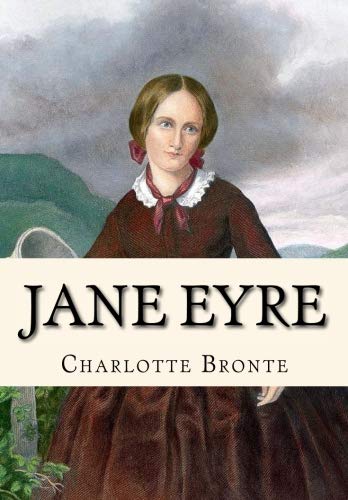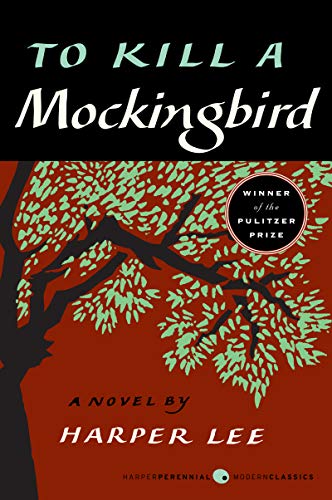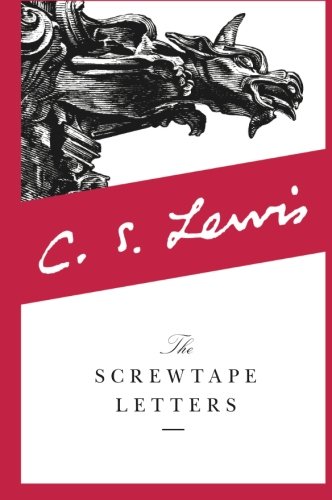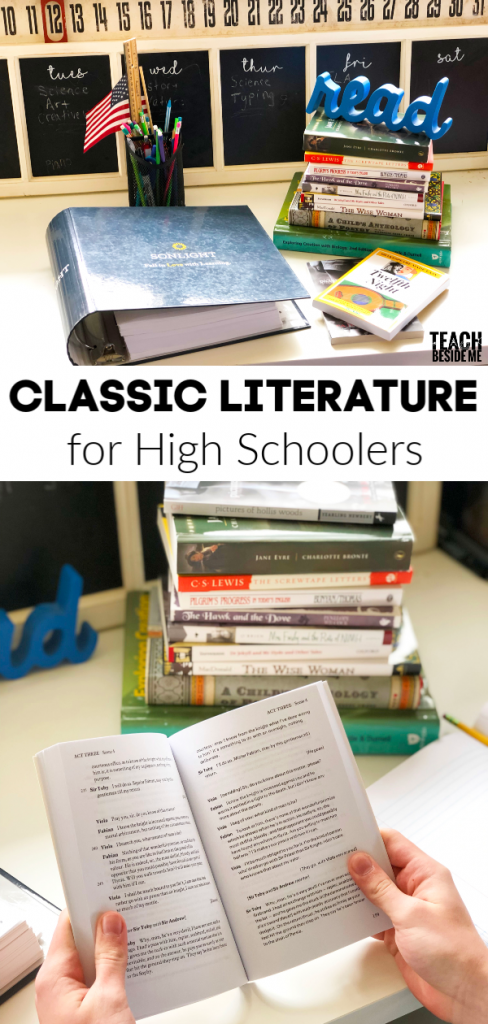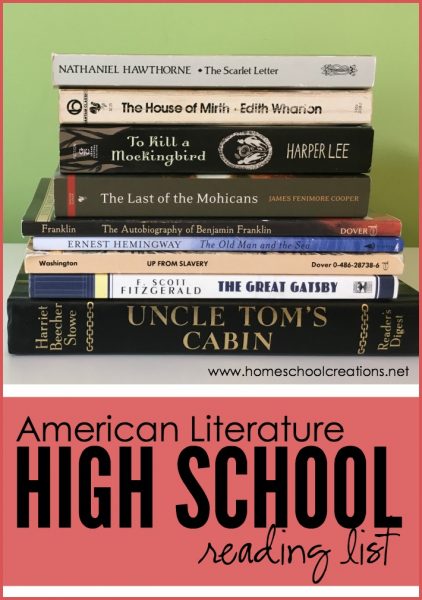Resources for Teaching the Classics
Published:
November 29, 2019
Contributor:
Jeannette Tuionetoa
Disclosure: This post may contain affiliate links, meaning if you decide to make a purchase via my links, I may earn a commission at no additional cost to you. See my disclosure for more info.
Some may question whether teaching the classics even has a place in our children’s education. I would argue that our students need a combination of both modern text and classical literature to develop a well-rounded knowledge base in English studies. If you agree, then grab these resources for teaching the classics in your homeschool.
I guess you can say I am a literature advocate. Therefore, my opinion on whether we should still teach classics in our homeschool is quite skewed.
I am biased because learning the classics wasn’t something I took advantage of as a student while in public school. Honestly, I couldn’t have cared less. I barely went to school and still passed, somehow. I remember doing one book report on John Henry, and I didn’t even read the book.
How sad is that? I never read a whole chapter book as a student until I reached college. I knew how to read, of course. I just never was encouraged to read a book in its entirety.
I was faced with extreme regret about this when entering college and was expected to know the likes of Shakespeare, Jane Eyre, or other classics. I didn’t. I was embarrassed, but no one knew. I spent years trying to catch up. I decided to major in English, the subject I loved– yet knew little about.
Jane EyreWilliam Shakespeare: The Life and Times OfLittle Women: (Penguin Classics Deluxe Edition)
We have the power, my fellow parents, to teach our children in a way that can help them see the world differently. They can see the world through the eyes of an orphan, through the stomach of a whale, or by traveling through the Great Gatsby.
The Great GatsbyMoby Dick (1956)Anne of Green Gables (Signet Classics)
What is the point of teaching classics in your homeschool?
Do you ever wonder that? Why should I teach classics to my kids? Will they need it? What use are they? Those thoughts never ran through my mind once, but I know they are common.
I knew what a gap in the knowledge I had when I found that my mind wasn’t enriched by the texts which framed modern literature as we see it today.
I see literature as the colorfulness of the mind, and the classics are the origins of that rainbow. Our kids can’t genuinely appreciate modern books without the origins — the classics.
You get why classics are essential in our homeschool but are you still on the fence about teaching them? There are other reasons to keep classics or to start teaching classics in homeschool.
Why teach classics in your homeschool?
1. Historical context – Surely, we can teach our children about history and give exams about what was happening during a specific time period. Can we teach about the end of the medieval period and pilgrims with details and facts? Sure, but what better way for our kids to truly understand and experience a piece of history than to teach it alongside a story-telling contest that takes place between a group of pilgrims in Chaucer’s The Canterbury Tales?
Jane Austen: The Complete Works 7-Book Boxed Set: Classics hardcover boxed set (Penguin Clothbound Classics)Moby-Dick (Bantam Classics)To Kill a Mockingbird (Harperperennial Modern Classics)Canterbury Classics Box Set
2. Increase vocabulary – The advanced (and foreign) vocabulary of classic literature was quite intimidating to me, even as a college student. I bet this is the concern of some children as they attempt to read the classics. However, the classics can stretch a student’s thinking skills as they search the context for clues for words they don’t understand or reach for a dictionary to look up the meaning of a new word.
3. Moral lessons – Classical literature is chock-full of moral lessons our children still face and can learn from today.
4. Biblical truths and perspective – There are Christian classics that are powerful, showing examples or metaphors of the Lord’s plan for humanity and the mores of a Christian worldview. My favorite Christian classic is The Screwtape Letters. I mean, I can imagine that as a child learning that the book is compiled of 31 letters written by a senior demon, is pretty intriguing.
The Screwtape LettersC.S. Lewis and The Chronicles Of Narnia
5. Knowledgebase – Show me a student who has read many classics, and I will show you a child whom I can carry a conversation with. Reading remains one of the best ways to improve intelligence. Reading classics is like looking into a window to the mind of geniuses. I often wonder how these writers sat down and wrote a book that stood the test of time and became what we would call a “classic” today and through generations.
Here are some resources to help you keep and teach the classics in your homeschool:
Classic Literature for Kids | Babies to Bookworms
9 Exemplary Children’s Books that Teach Ethics & Moral | Live, Love Jillian
3 Tips for Introducing Classic Literature for Kids | Teaching with Children’s Books
10 Must-Read Classics for High School | Writing with Sharon Watson
Keeping Classic Lit in the Curriculum | The Darling English Teacher
Classic Literature for High Schoolers | Teach Beside Me
11 Classic Middle-Grade Books We Should Still Teach and 9 Ways to Keep the Classics Fresh in High School English | We are Teachers
Using Classics in Your Classical Homeschooling | How to Homeschool my Child
Do You Teach the Classics? | Hunger Games Lessons
Classic Novels For Grades 3 & 4 | Intentional Homeschooling
The Christian Classical Reading List for Mom | Faithful Motherhood
10 Must Read Classics for Upper Elementary Aged Kids | As We Walk Along the Road
Teaching the Classics: Strategies & Resources For Challenging Texts and 10 Titles Still Worth Teaching | The Literary Maven
Teaching High School Literature the Charlotte Mason Way | The Joy-Filled Mom
All About Teaching Literature | Clarissa West
FREE Printables to help you teach the classics in your homeschool:
Printable Classic Literature for Third Grade – A Suggested Reading List | Mercer Homeschooling
FREE Unit Studies and Printables for the Most Loved Books: The Secret Garden
FREE Unit Studies and Printables for the Most Loved Books: Black Beauty
FREE Unit Studies and Printables for the most loved books: The Lion, the Witch, and the Wardrobe
FREE Printable Shakespeare Resources for Teens and Tweens | Captivating Compass
FREE Resources and Printables to Study Shakespeare
Pride and Prejudice Printable Bundle | Moore English
Hamlet for Kids (FREE Printable) | My Learning Table
FREE American Literature Reading List for High School
Jane Austen’s Pride and Prejudice: A Book-to-Table Classic (Puffin Plated)The Secret Garden (HarperClassics)Hamlet ( Folger Library Shakespeare)The Complete Works of William Shakespeare (Knickerbocker Classics)
Teaching classics combined with contemporary books create a healthy balance of literature knowledge for your children. I read recently in an article that as homeschoolers, we have a wonderful opportunity as parents to shape the thinking of our children. Helping them to learn about the world around them with classics and modern texts jointly provides them with a broader perspective.
The reasons we should still consider teaching classics in our homeschool are undeniable. I am sure it can be difficult for some parents, especially those who aren’t avid readers, to try and tackle these classics during homeschool. However, providing your children with knowledge no one can ever take away from them, is priceless.


